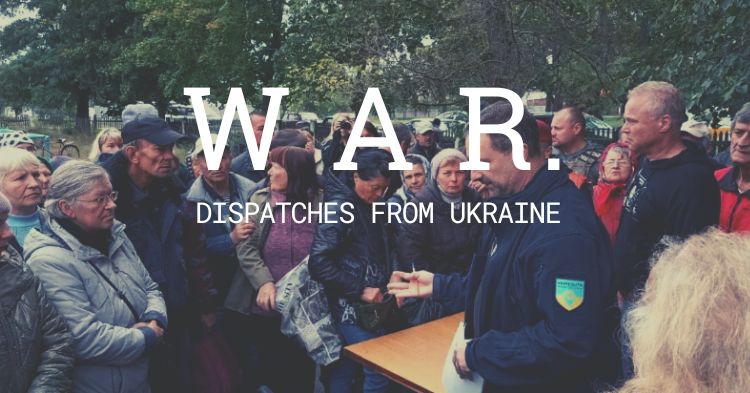After 6 months of Russian occupation, the Ukrainian army liberated the cities of Balakliia, Kupiansk, Izium, and Vovchansk in eastern Ukraine.
Throughout July and August, additional long-range artillery provided by Western partners helped the Ukrainian Army to increase the number of strikes and to disrupt the logistics of the Russian troops. In the Balakliia-Izium counteroffensive, Ukraine introduced mobile troops to rapidly cut off communications and the withdrawal options of the enemy. The aim was to cause the enemy's front to collapse from intimidation and destruction of hardware alike, resulting in the Russians chaotically retreating and abandoning their heavy weapons.
Ukraine’s counteroffensive near Kharkiv: what enabled the Balakliia blitzkrieg
Ukraine effortlessly pushed back Russian forces from territory that they had controlled for more than six months. On 11 September Ukraine's top military commander General Valeriy Zaluzhnyi claimed that the country's military had retaken more than 3,000 square kilometers (around 1,158 square miles) of territory. More than 300 settlements and about 150,000 people have been freed from occupation since the beginning of the month.
Balakliia (Balakliya) is one of the cities of the Kharkiv Oblast where Azov soldiers from the "KRAKEN" unit reinstalled the Ukrainian flag.
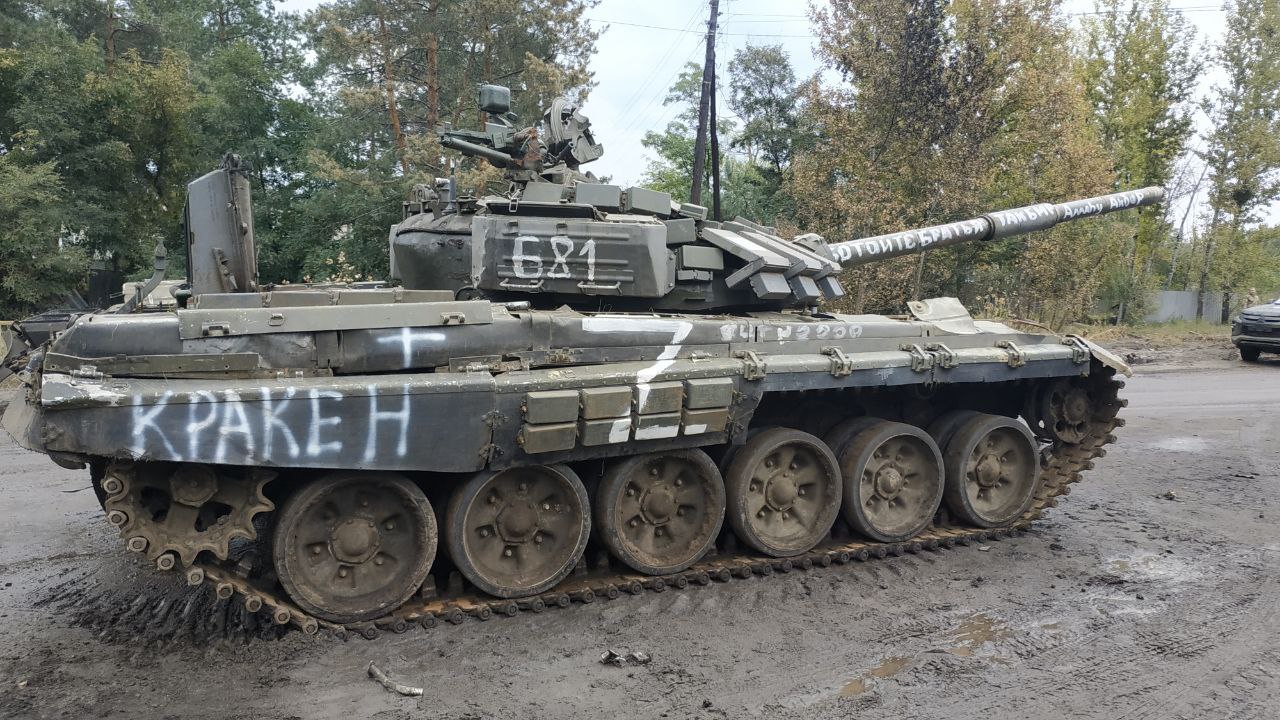
Afterward, the military, volunteers, postal workers, rescue services, and utility workers entered the liberated cities.
First of all, the State Emergency Service’s pyrotechnic units inspected bridges and all aspects of the critical infrastructure so that specialists in electricity, gas, and water supplies could access the networks.
The first reports of journalists about the liberated settlements appeared on 13 September. It was a rainy, cool autumn day in Balakliia (Balakliya). Devastated remains of buildings pierced the grey sky where shops, schools, and hairdressers once stood. Locals said they had heard shelling every day.
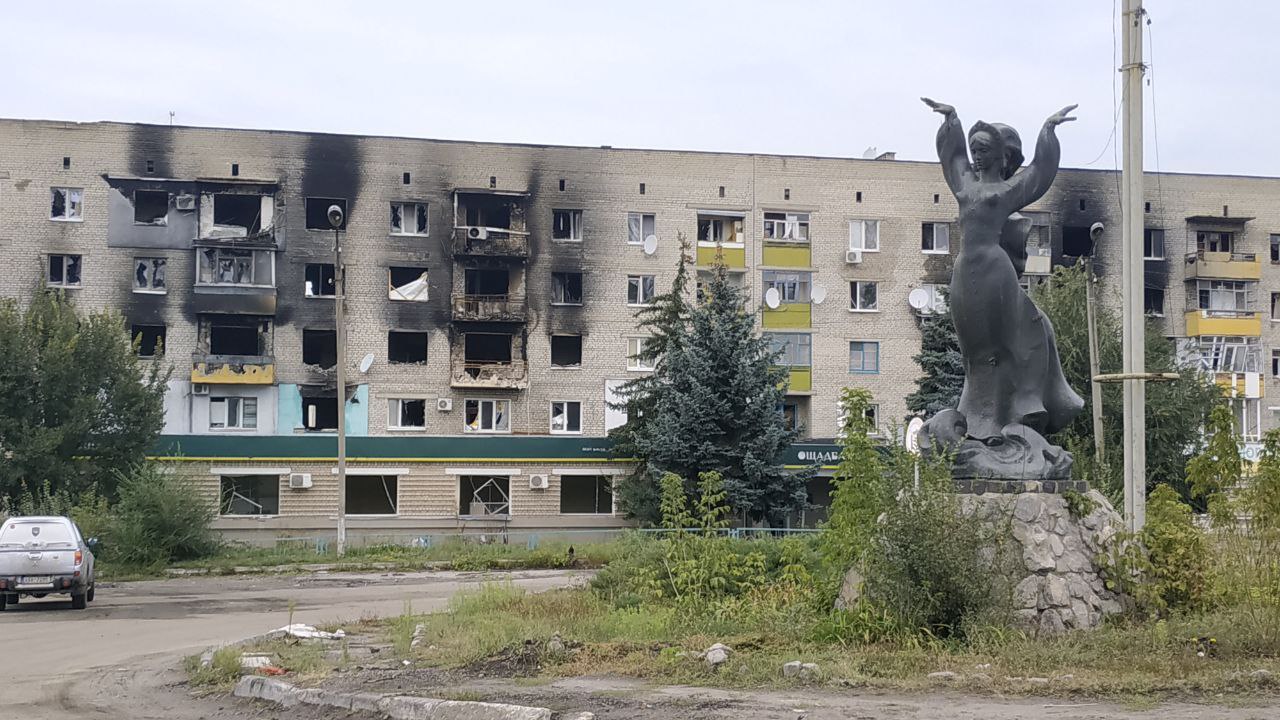
The mutilated and abandoned Russian equipment daubed with the letter Z faced the disgust and rage of those who were left after the Russians' flight.
Driving through the streets, lone pedestrians or cyclists could be seen. The center where humanitarian aid is distributed is already busier. Mostly elderly people had remained under Russian occupation.
The majority of people who lived through occupation had no internet or TV for most of the period because of power and internet cuts. They lived in an information vacuum. No one had heard about the atrocities committed by Russian forces against Ukrainians in other regions, or the events in Mariupol, where at least 20,000 people are estimated to have died.
Russia had broadcast a "Z" radio station in the town. It is hard to tell how much those who listened to it had absorbed the narratives of the “Russian world.”
The locals said they had had little interaction with the Russian forces, who had based themselves on the edges of town. Unlike in northern Ukraine, they said that although the Russians had not respected them and had constantly looted their belongings, they had not physically abused them.
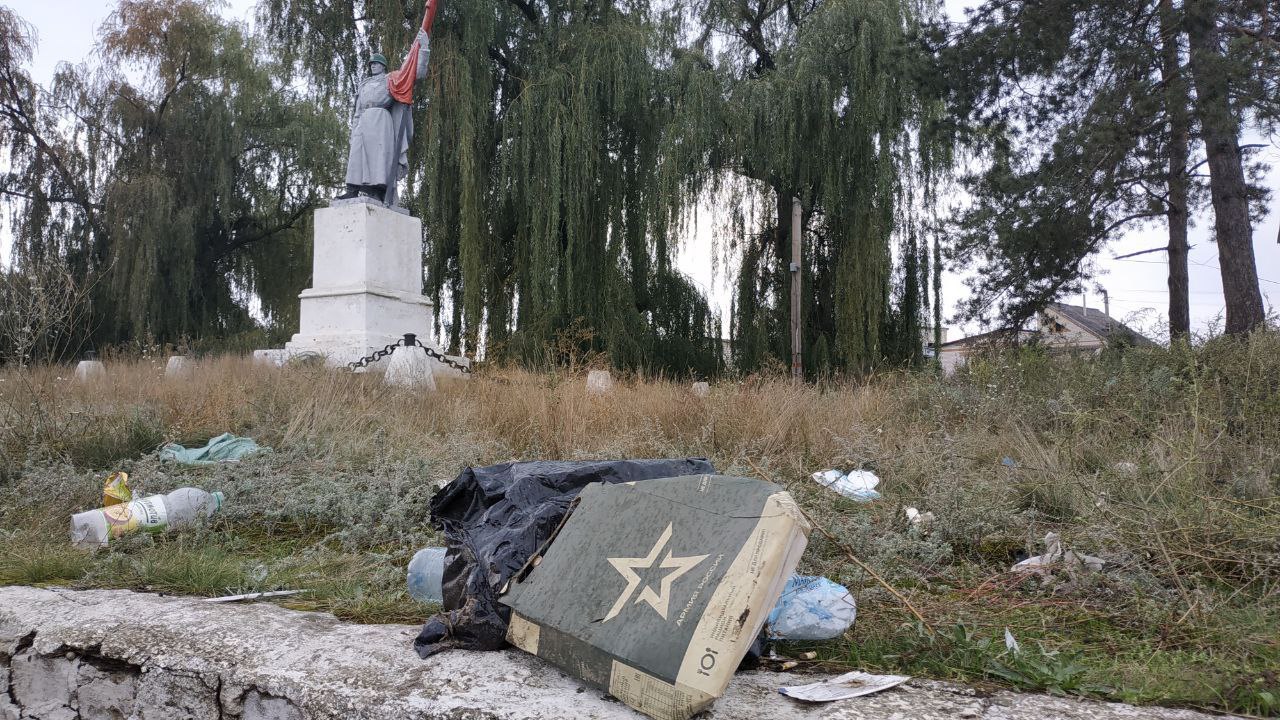
The head of Ukraine's state postal carrier Ukrposhta Ihor Smelianskyi had led the convoy of mobile post offices which were early to return to Balaklia after its liberation.
"We connected the Starlink system, so we have the ability to quickly restore all systems and maintain communication," he told.
Employees of Ukrposhta began to promptly distribute backlogged pensions to seniors in the liberated territories. The parcels should start arriving in the coming days.
Oleh Syniehubov, the head of the Kharkiv Regional Military Administration, assures local residents in Balaklia:
"Our main task at the moment is to restore the functioning of state authorities so that people know who to turn to with their problems."
After this will come the restoration of the critical infrastructure.
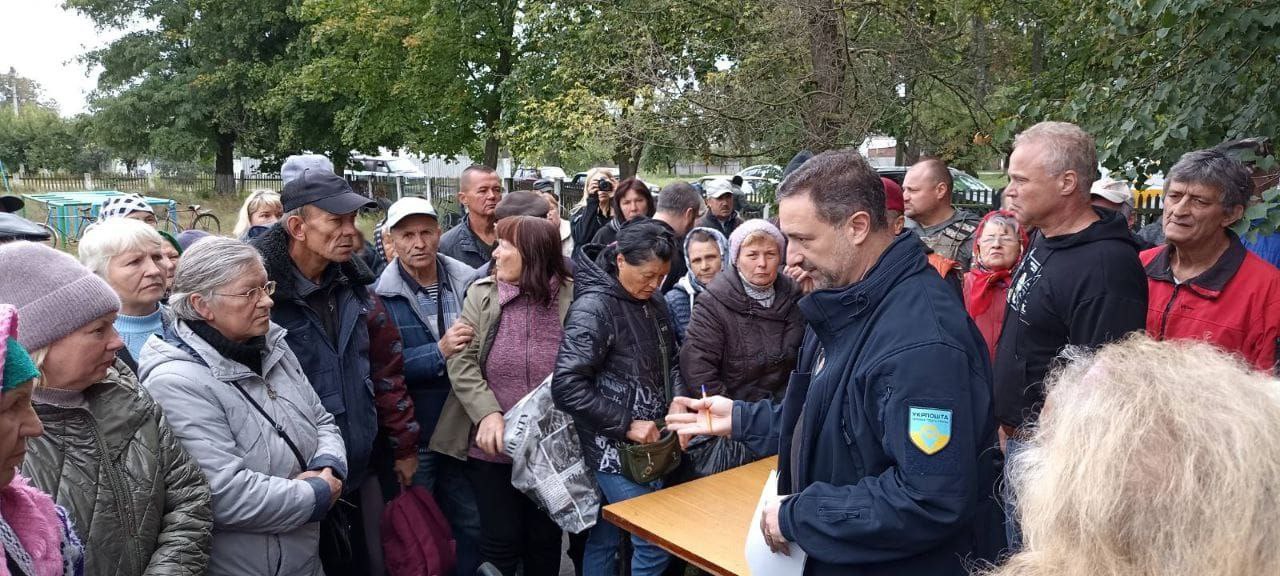
A few days after the liberation, the first train from Kharkiv left for Balaklia, although the local authorities warn it is still too early for civilians to return to such cities. The removal of mines has yet to be completed and the enemy remains close by.
Kupiansk, a town that is crucial to Russian supply lines, as it connects their military base across the northern border in Russia's Belgorod to Ukraine's eastern Donetsk region and the frontlines of the Donbas, was liberated after Balaklia.
There was constant shelling, lack of information, fear, and anxiety. People lived without gas and water. The electricity was turned on intermittently. Residents of Izium say that the Russians set fire to the local administrative building on the day they fled the city. The Russian military destroyed about 70% of the buildings in Izium.
Liubov Semenivna, a resident of Izium, returned from the city center upset. The woman is 76 years old. She complained that she could not get any humanitarian aid and that younger people were more agile and quicker to receive it. Her daughter went to Poland with her children. Liubov's grandchildren study remotely at a Ukrainian school. The gymnasium in Izium, where children studied before the full-scale invasion of Russia, was destroyed by artillery fire. The woman herself spent many days in the basement. It was scary, but she didn't want to leave her home. Her own preserves prepared last summer and autumn came to the rescue. Some food was provided by the occupiers.
"We used to sit on a bench outside the yard and ask the Russian soldiers:
- What do you want from us, why did you come to us?
- To free you, you will live an even better life. And we say: We didn't ask you to come and make it better. We had a good life without you.”
Mykola, who is 76 years old, also did not want to leave his own house in Izium. He said that if he had been younger, he would have left. His daughter is in Germany, all the time pleading for her father to come. "And where will I go?" laments the man and points to the dilapidated houses of the neighbors: "You yourself can see through the fence, through the windows, how life was here. It was terrible, hard."
Although he did add that the occupiers did not insult him and that he also tried to avoid them.
When there was no more electricity, Mykola shared the supplies from the freezer with his fellow villagers: "It was easier for those who lived in houses with vegetable patches - at least we had something to eat."
People accepted humanitarian aid from the Russians. "What else was there to do, starve to death?" the pensioner asked.
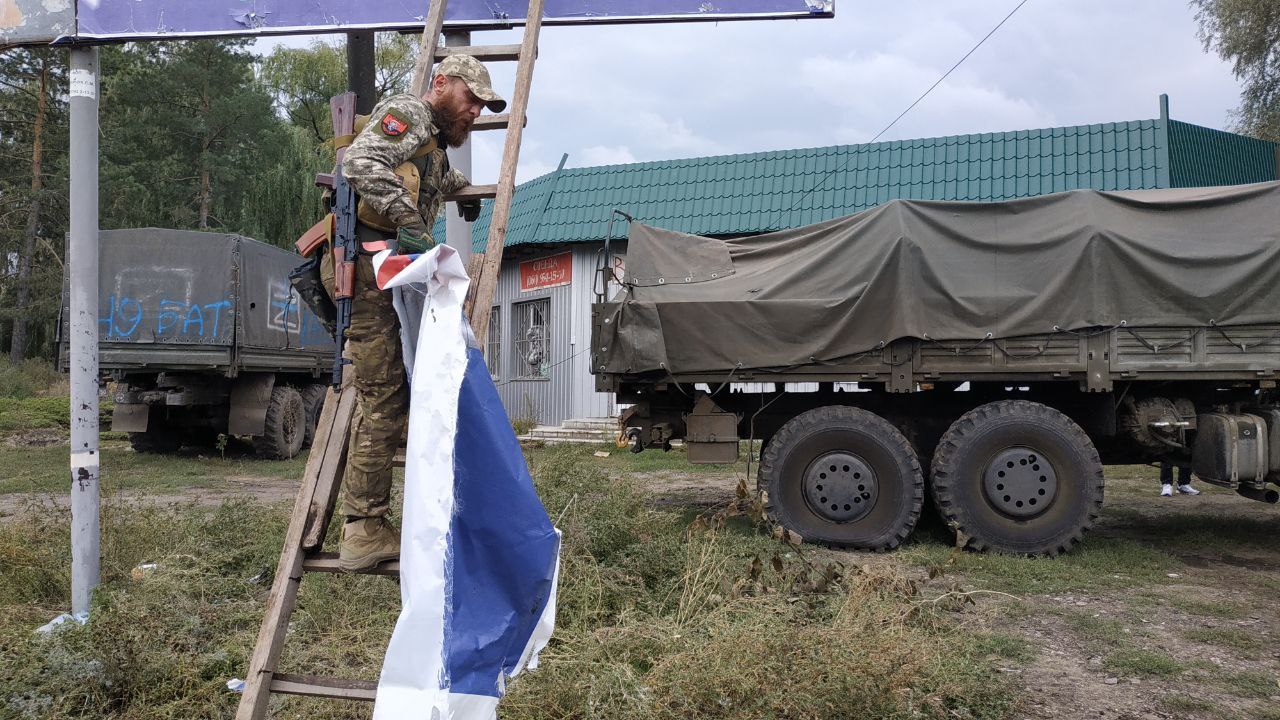
It was not everywhere that the occupiers were lenient with the locals. Before the war, almost 1,200 people lived in Kutuzivka, a village 20 kilometers east of Kharkiv. Now 10 times fewer people live here. Nadiia, a local resident, says that they lived without gas, electricity, or water.
"We survived as best as we could. Everything is broken, nothing is working." Larysa, her neighbor, adds: "They kicked us out of the apartment into the basement, and took away the keys. We sat in the cold basement for a month and a half."
On the whole, the residents of the Kharkiv Oblast are happy about the liberation, although some locals are hostile to the Ukrainian forces and many collaborators escaped with the Russians.
The Ukrainian State Investigation Bureau detained the collaborators who worked for the Russian occupiers in the liberated cities of Izium and Kupiansk. A local tax office official who had worked in recruitment for the occupying city council of Izium had provided the occupiers with information about local Ukrainian patriots.
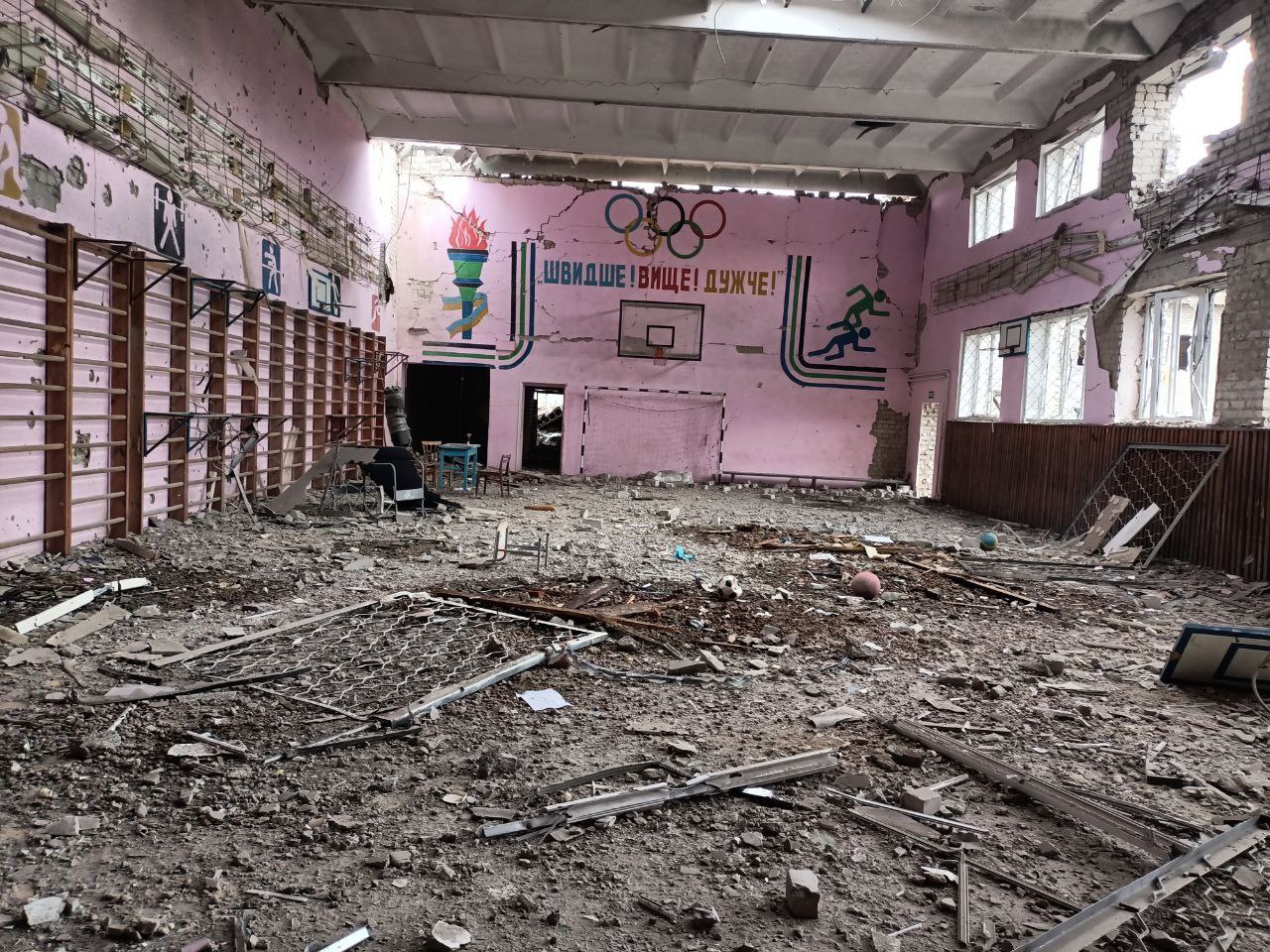
Residents of the liberated Kharkiv Oblast hope that now there will be less shelling and before the onset of cold weather, utility workers will be able to re-establish water, gas, and electricity supplies. The local authorities are evacuating the population from the border villages. On 14 September, 75 people left Kozacha Lopan, a village where there was a customs checkpoint with Russia before the war.
While fleeing, the enemy destroyed bridges and overpasses in the Kharkiv Oblast. The highway service is in the process of clearing the roads of the remains of the debris left by the occupiers. In the near future, they plan to construct two temporary crossings by the destroyed bridges with the aim of clearing 30 km of roads.
In the liberated territories of the Kharkiv Oblast, the work of medical institutions is being resumed. In the Vovchansk Central District Hospital, the roof of the catering building was partially damaged and the windows were broken after enemy shelling. Despite this, doctors and junior medical personnel continued to work here. Doctors who were evacuated during the occupation will soon be able to return to their duties.
Numerous cases of war crimes have been revealed in the liberated cities. A large mass grave containing hundreds of bodies has been discovered in Izium. In Balakliia, the occupiers organized their headquarters at the police station. In the basement there and in the building across the road, a former printing house, the Russians established a prison and a torture chamber.
“Thin fingers raised like a final plea for help.” Exhuming the Izium massacre
Serhii Bolvinov, head of the Police Investigative Department in the Kharkiv Oblast said they are recording apparent war crimes "in almost every village."
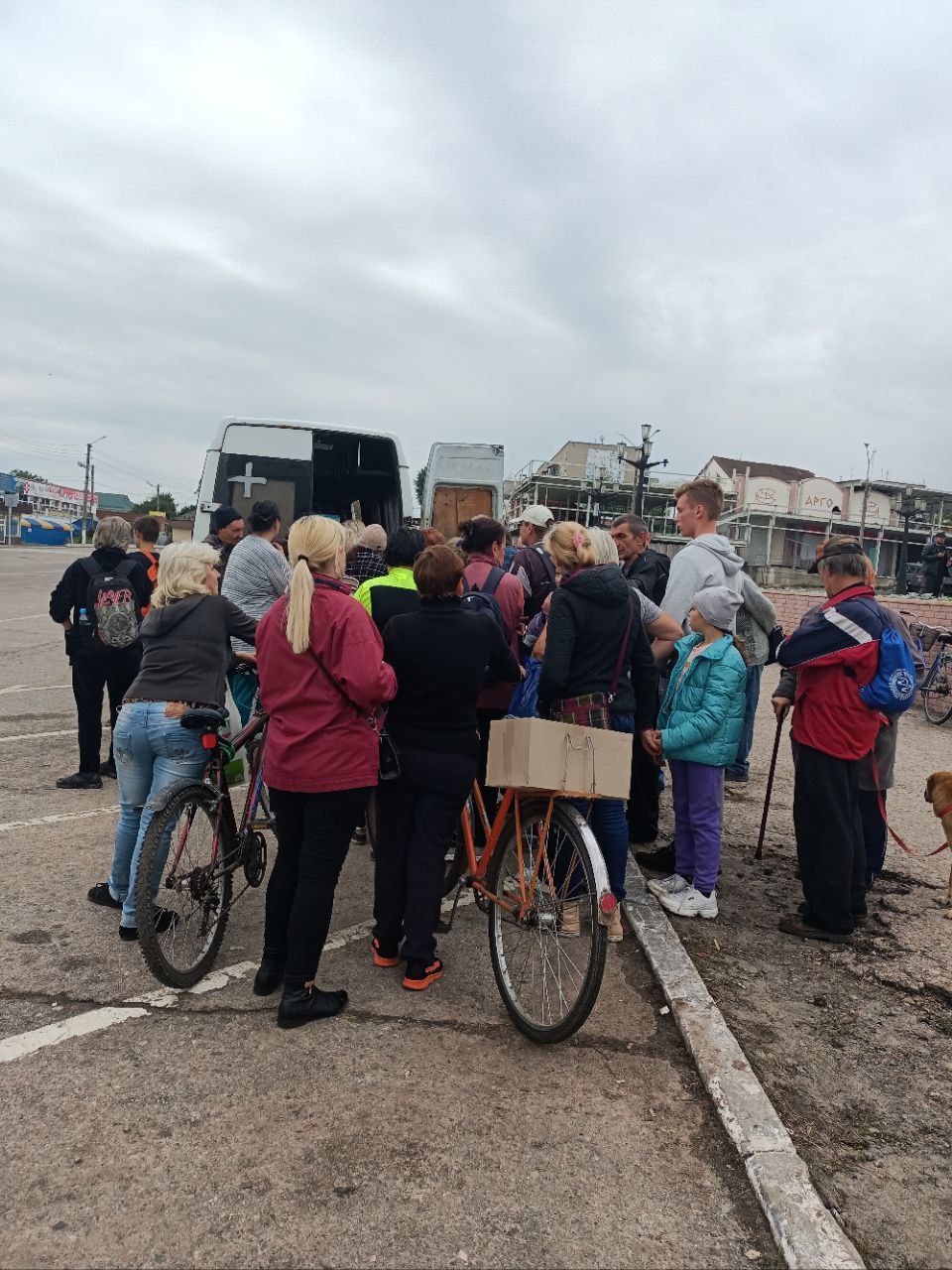
Volunteers go to liberated cities. Natalya Bordiychuk, a volunteer of the "Ukraine for Heroes" movement, says that they had brought recently humanitarian aid to Balakliia - more than two thousand tons of food, and medicines.
"Every day we carry 500-1,500 food packages to the Kharkiv Oblast. This is not enough. People need psychological support in addition to humanitarian aid. They did not want to let us go, the locals kept asking - talk to us more, listen to us."
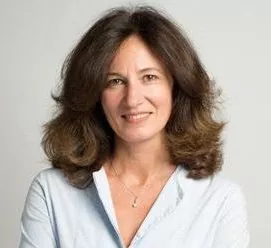
Olga Golovina is a contributing author at Euromaidan Press. Since the Russian full-scale invasion of Ukraine, she has worked as a freelancer for Geneva Solutions and a fixer for DW. She has almost 20 years of experience working at Ukrainian TV Channels and participating in educational projects. Olga can be contacted at [email protected]
Related:
- Ukraine’s counteroffensive near Kharkiv: what enabled the Balakliia blitzkrieg
- Russian occupiers in Makariv shelled the civilian shelter “in an instant” – Dispatch from Ukraine
- “Thin fingers raised like a final plea for help.” Exhuming the Izium massacre
- Russian war crimes in Katiuzhanka: torture chamber, toilets in classrooms, and stolen lingerie
- Bucha slowly comes to life after Russian massacre: Dispatch from Ukraine

